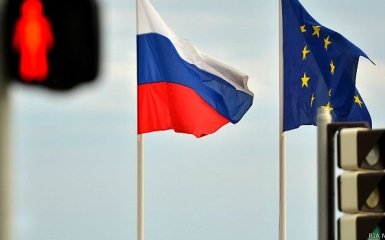On Monday, December 18, the European Union approved the introduction of the 12th package of sanctions against the Russian Federation due to the criminal war and terror unleashed by the Kremlin in Ukraine.
What is known about the 12th package of EU sanctions against the Russian Federation
In this 12th pack, we offer a powerful set of new lists and economic measures that will further weaken the Russian military machine. Our message is clear, as I already stated when I headed the informal Foreign Affairs Council in Kyiv: we remain steadfast in our commitment to Ukraine and will continue to support its struggle for freedom and sovereignty, the EU's foreign affairs department chief, Josep Borrell, explained.
In particular, among the critical new sanctions measures is a ban on the import or transportation of diamonds from the Russian Federation.
The ban applies to diamonds mined in Russia, diamonds exported from the Russian Federation, diamonds transiting through Russia, and Russian diamonds processed in third countries.
The ban also applies to jewellery with Russian diamonds.
What is known about other restrictions against the Russian Federation
Twenty-nine organizations and companies that support the Russian defence complex were included in the sanctions list.
Some of them belong to third countries and are involved in the circumvention of trade restrictions or are Russian organizations interested in developing, producing and supplying electronic components for Russia's military-industrial complex.
The ban on transit for dual-use goods and technologies exported from the EU to third countries through the territory of Russia has been extended.
It is planned to introduce stricter rules of the price limit mechanism of action for Russian oil.
Also, a strengthened information exchange mechanism will better identify vessels and organizations that engage in deceptive activities, such as ship-to-ship transfers.
It was decided to introduce notification rules for the sale of tankers to any third country to make their sale and export more transparent.
In particular, we are talking about used vehicles that can be used to evade the ban on importing Russian crude oil or petroleum products and the G7 price restrictions.
Today's decision adds Switzerland to the list of partner countries that apply restrictive measures to import iron and steel from Russia.
A significant number of additional individuals and legal entities were also included in the list.
Chemicals, lithium batteries, thermostats, DC motors and servomotors for drones, machine tools and parts of machines and mechanisms have been added to the list of goods whose export to the Russian Federation is prohibited.
The European Union is introducing additional restrictions on the import of cast and pig iron, copper and aluminium wire, foil, pipe and rolled steel, with a total value of 2.2 billion euros per year, as well as banning the import of liquefied propane with a 12-month transition period.
At the same time, periods of gradual reduction in the import of certain types of metal products continue.
More on the topic
- Category
- World
- Publication date
- Додати до обраного


